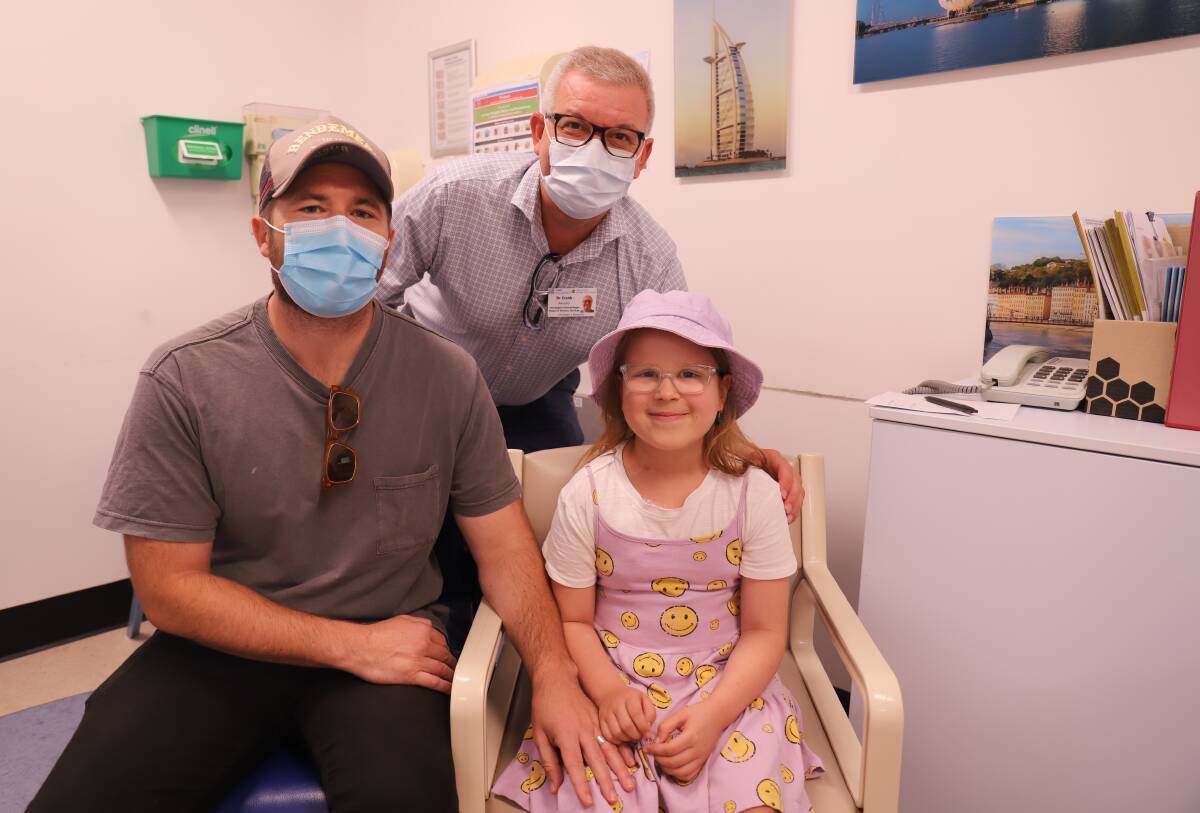
Up to 50 children from the Hunter New England region will benefit from a new precision medicine program to treat children with cancer.
John Hunter Children's Hospital will be one of nine centres in the country to gain access to the "Zero Childhood Cancer" program, which will be open to "all young Australians with cancer" aged up to 18.
The federal government and Minderoo Foundation are jointly funding the $67 million project, which covers "children diagnosed with any type of cancer, irrespective of their cancer risk".
Dr Frank Alvaro, head of oncology at John Hunter Children's Hospital, said the program involved "finding the unique genetic fingerprint of each tumour".
The research program provides the "potential to find a targeted therapy that we wouldn't have found otherwise" through a "refined diagnosis".
The treatment had previously been offered to children with the highest-risk cancers, who faced a less than 30 per cent chance of survival. An expansion of the program across the country will begin this month.
"The program has proven that it's possible to tailor treatment plans for extremely rare and difficult tumours," Dr Alvaro said. "I've seen children it has helped."
Under the existing program, Dr Alvaro recently treated a seven-year old patient named Dottie in a Newcastle clinic. She was diagnosed with an unusual form of T-cell lymphoma.
Dottie's mum Rachel said her diagnosis was "devastating for the entire family".
"Finding out that she could have treatment tailored and targeted for her condition has given us a glimmer of hope," Rachel said.
Dottie is three rounds into her treatment.
"Her most recent PET scan was clear. While we know we are only halfway through the treatment, we feel very grateful. Receiving a targeted treatment plan within a week of her diagnosis is pretty amazing."
Dr Alvaro said the expansion of the Zero program is "a huge leap forward in giving every Australian child diagnosed with cancer, the opportunity to benefit from precision medicine".
"Hopefully many other children will have access to molecular information on their tumour and targeted treatment will be possible - just like it is for Dottie."
Dr Alvaro said a lot of childhood cancers "do have very good outcomes".
"If you have a cancer with a 90 per cent chance of a cure and a proven therapy, you might not change the treatment," he said.
But if it were to return or the child wasn't responding well to traditional treatment, the precision program would be used.
To see more stories and read today's paper download the Newcastle Herald's upgraded news app here.







